BY KEITH J. KELLY | Anyone interested in the history of Downtown Manhattan — and a rollicking good show set in the Civil War era — should rush to see “Paradise Square” now on Broadway.
The critically acclaimed musical, which opened in April to rave reviews at the Barrymore Theatre, is set in the infamous Five Points neighborhood during the early 1860s and portrays the interaction between Blacks and newly arrived, struggling Irish immigrants.
The two diverse groups had formed a rough friendship, living and sometimes marrying, based mainly on the grounds that both groups were the “others” despised by the Uptown establishment of business people. Unfortunately, the harmony was shattered with the eruption of the 1863 Draft Riots.
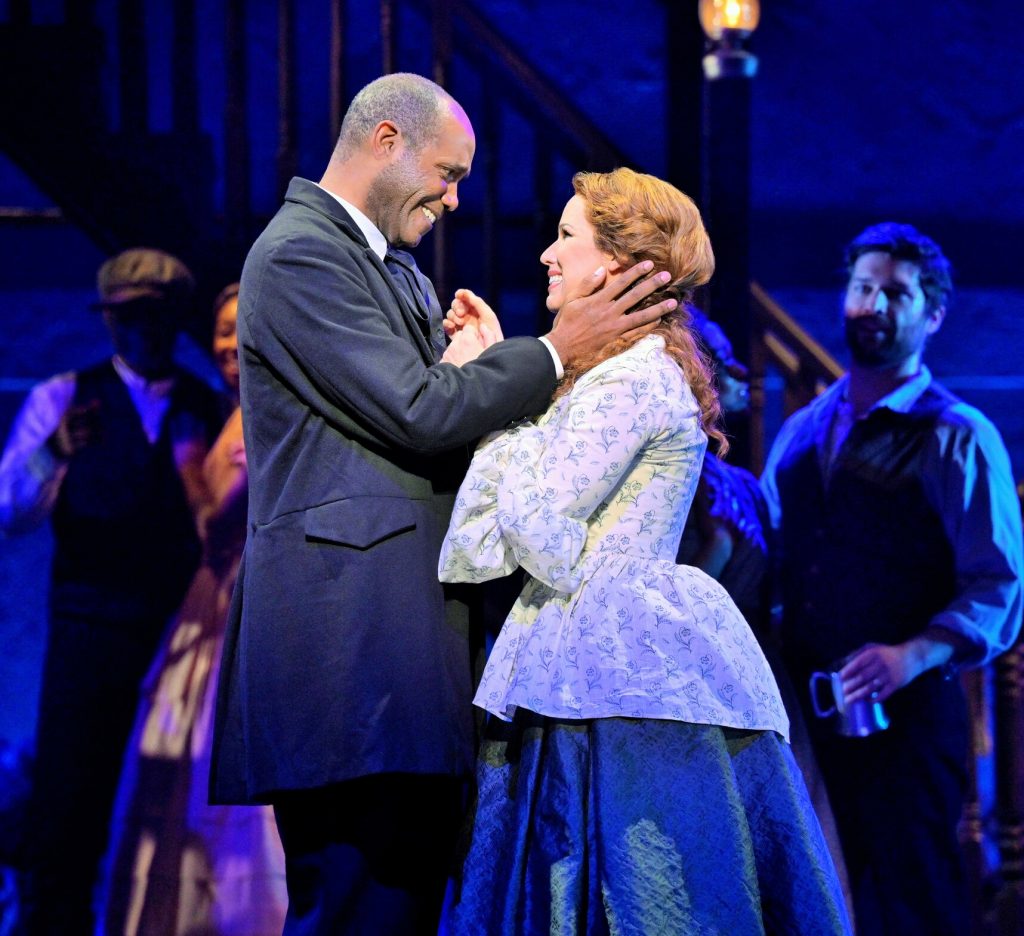
There really was a part of the Five Points known as Paradise Square, although Larry Kirwan the play’s conceivor and co-writer — author of the recently published “Rockaway Blues” and the former front man for the political rock group Black 47 — says the pub of the same name where much of the action takes place in the play is a work of fiction. In earlier versions of the play, which began more than a decade earlier, he had dubbed the saloon Willie O’Briens Pub.
“The original inspirations were in gestation for many years,” recalled Kirwan, who was born in County Wexford, Ireland, before landing in the Big Apple. “In the 1970s and ’80s I spent a lot of time in used bookstores like The Strand in that general area below Union Square.
“I came upon a book one afternoon that had a title something like “A History of Lower Manhattan.” It contained etchings of the African-American-owned dance halls of the Five Points. A couple of the etchings were of the dancers — Black men and Irish women. There was always a look of joy and elation on the faces of the dancers — I could tell that the artist was conveying the idea that these people were in love.”
The earliest incarnation of the play was performed under the title “Hard Times.”
“We produced “Hard Times” twice at The Cell Theatre on 23rd Street and Eighth Avenue in 2012 and 2013,” Kirwan said. And while it was well received, including “a glowing review in The New York Times,” he said it took a veritable battalion of collaborators to get it to Broadway.
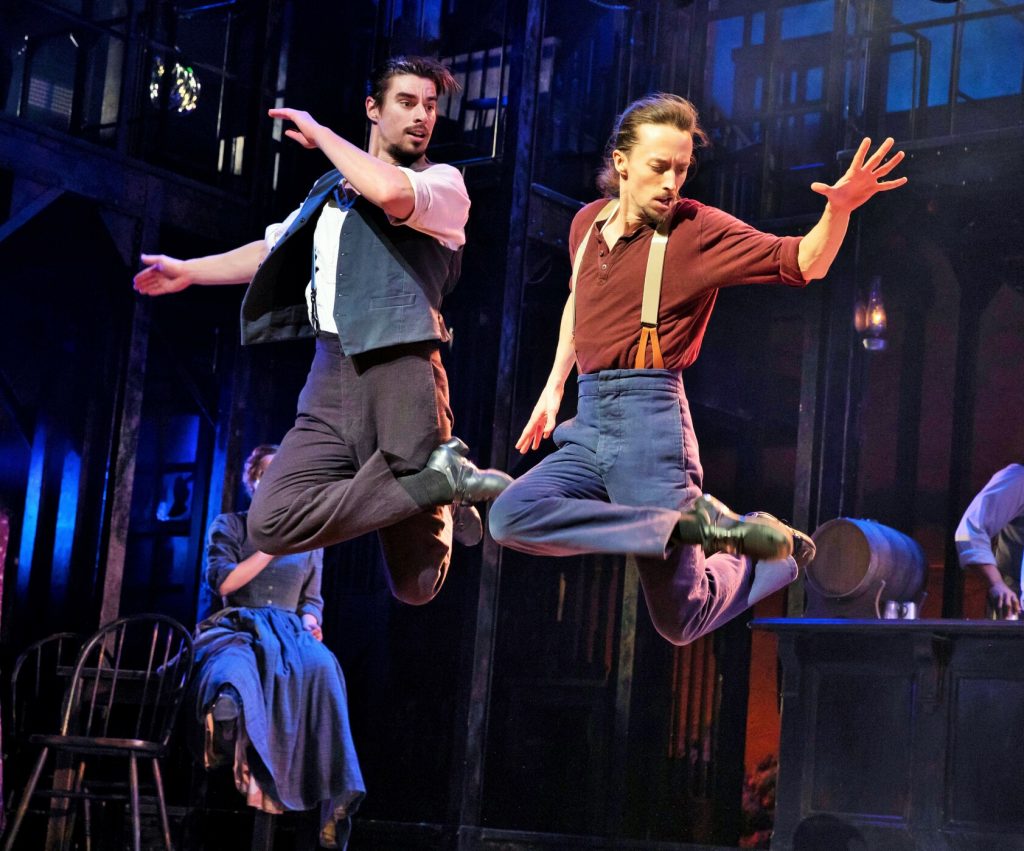
“An interest in the music and life of Stephen Foster played a part,” Kirwan said, “along with an interest in the history of immigration, having been an undocumented immigrant myself.”
The play represents a Broadway comeback for the controversial, Canadian-born producer Garth Drabinsky, who spent time in prison in Canada after he and Livent co-founder Myron Gottlieb were convicted of financial fraud and forgery in connection with Livent.
Drabinsky became involved with the play in his first project following his parole in 2013.
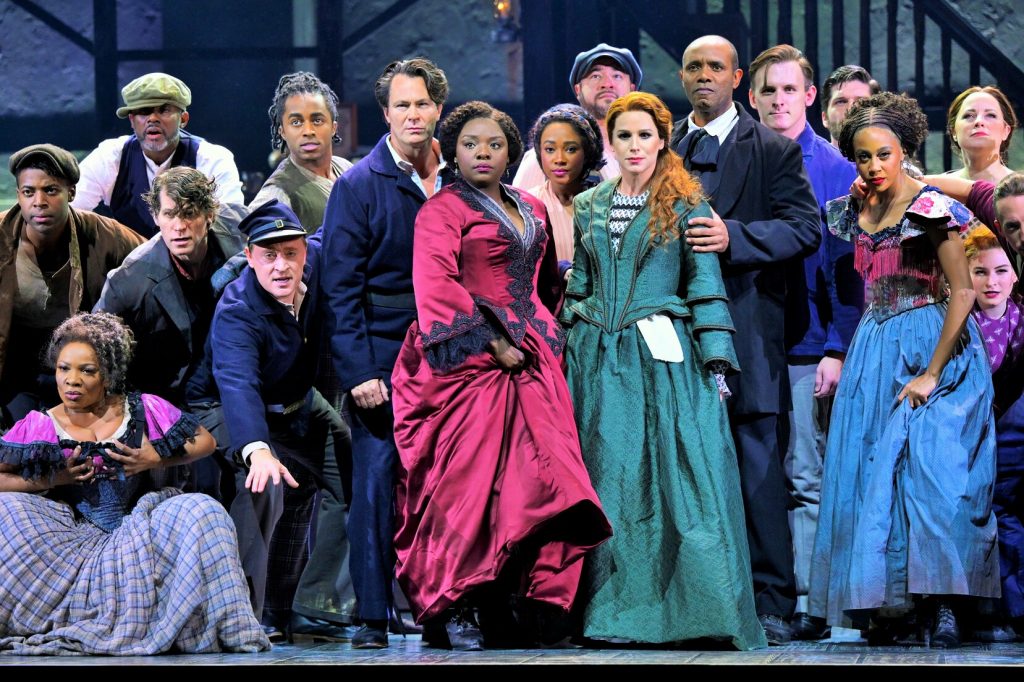
U.S. criminal securities charges that he was also facing over Livent were eventually dismissed on the grounds he had already spent time in jail in Canada for the crime. Up until the case was dismissed, he could not travel to the U.S. since he would have been considered a fugitive. That came to an end in 2019.
Kirwan said of Drabinsky’s controversial past, “I treat Garth as I do everyone else involved in “Paradise Square” from an artistic point of view — particularly since he’s been very involved artistically from the first day we began working together nine years ago.
“We have an extraordinary cast that’s getting standing ovations during, as well as, at the end of the show. They deserve the chance to tell this unique New York story and let New Yorkers decide on its merits from an artistic point of view.”
Much of the work of turning “Hard Times” into a piece worthy of the Great White Way took place in Toronto where Kirwan teamed up with Christina Anderson and Craig Lucas to co-write the play.
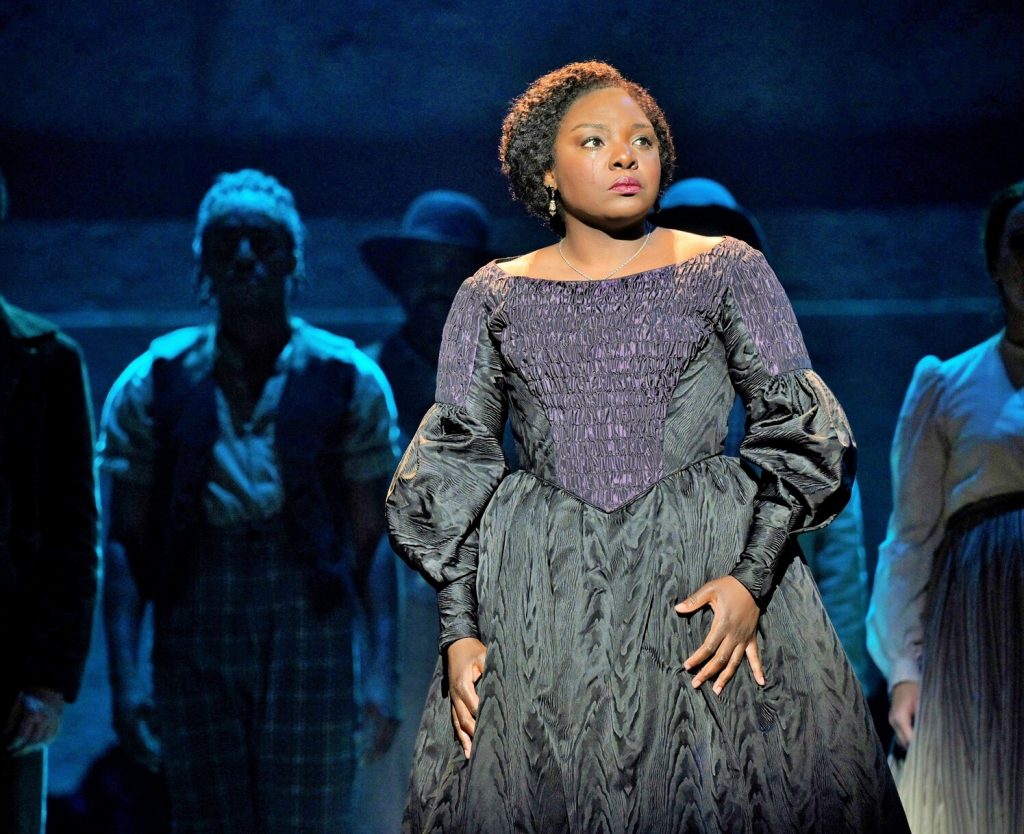
History buffs will also be cheered that there seems to be a reawakening of interest in the Five Points, which moviegoers last saw as the setting for the 2011 movie “Gangs of New York.” Last October, the City of New York put the Five Points back on the street grid by installing a sign designating the neighborhood’s former epicenter at Baxter and Worth Streets in Lower Manhattan with a street sign to mark the exact location where the original five streets converged.
While the Five Points was a notorious slum 125 years ago, it was also a melting pot. Or as Joaquina Kalukango, playing the starring role of the Black saloonkeeper Nelly O’Brien, says at the play’s opening, “This is where I lived. Right there, the corner of Baxter and Worth, in Lower Manhattan. Back then, it was called the Five Points and I’m sure you’ve all heard about our reputation: the first slum in America! Streets full of dirt, fugitives, drunks and whores. Well, that’s all true. But what else is true?”
The plays goes on to weave tales of racial harmony in the neighborhood. Kirwan is keenly aware that what many Irish did in the riots against the draft that convulsed the city in 1863 was reprehensible.
“History is messy,” he said.
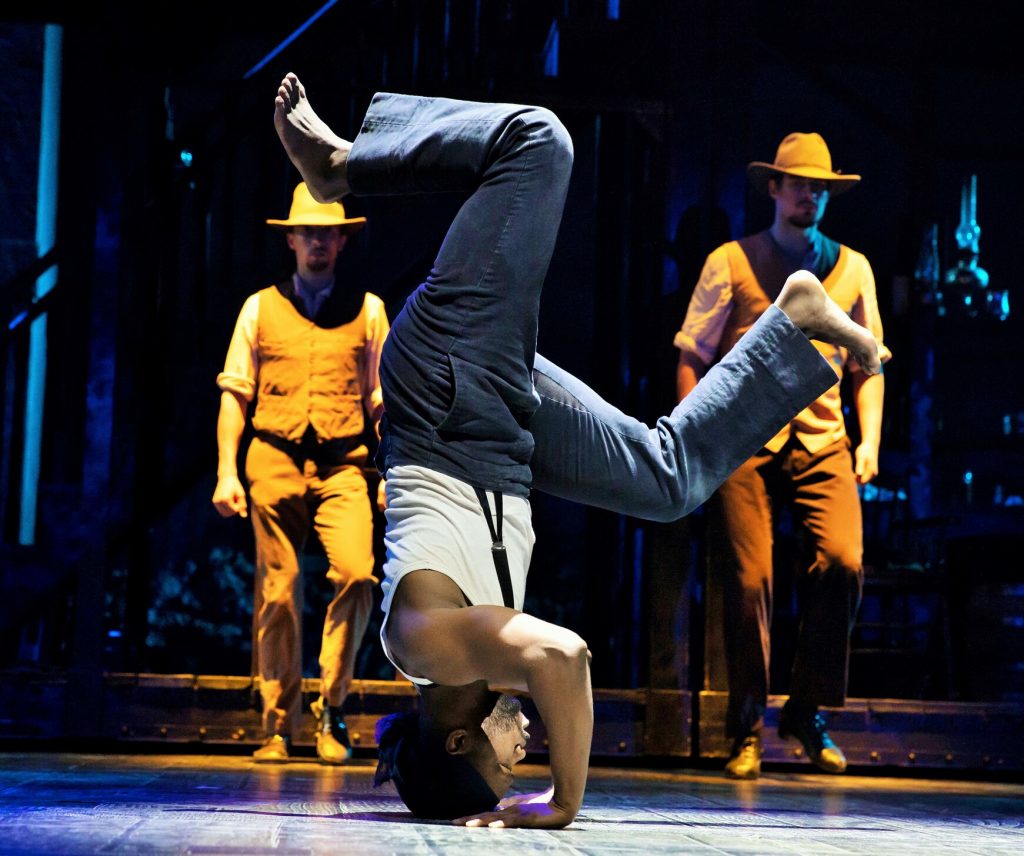
In the play, Nelly is married to a white officer in the Figthing 69th, an all-Irish regiment in the Union Army. Captain Willie O’Brien (played by Matt Bogart) is killed in battle, leaving Nelly to run the saloon on her own.
The new version of “Paradise Square” also introduced another interracial couple to the show, Annie Lewis, played by Chilina Kennedy, who played Carole King in “Beautiful,” and Nathaniel Stampley, who plays Reverend Samuel Jacob Lewis.
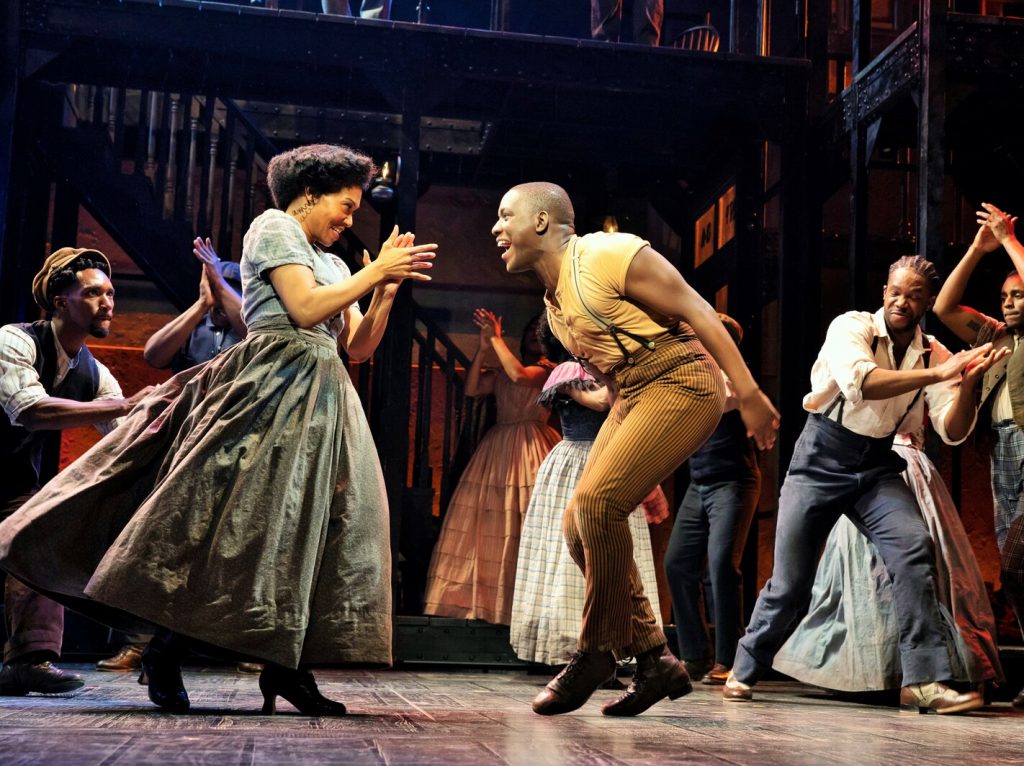
The draft that Lincoln introduced midway through the Civil War applied to male citizens and white immigrants between the ages of 20 and 45. But Blacks, who were not considered citizens, were exempt. Anyone who could afford to pay $300 — or could find a stand-in to take his place — was also exempt from the draft. That stoked resentment among the poor working class in many big Northern cities because $300 was equivalent to a year’s pay for many workers.
In New York it was particularly the Irish and Germans that led the four days of horrendous rioting and lynchings. The official death toll was tallied at 119 but some sources at the time estimate it could have been as high as 1,500 as rioters battled the police and the Army, buring government buildings and then turning their anger on the Black community.
The play has the rioters at the door of the Paradise Square saloon, where Nelly belts out an emotional song, “Let It Burn,” that draws an impromptu standing ovation. Most of the rioting during the Draft Riots was actually further Uptown while much of the infamous Sixth Ward where Paradise Square was situated was spared.
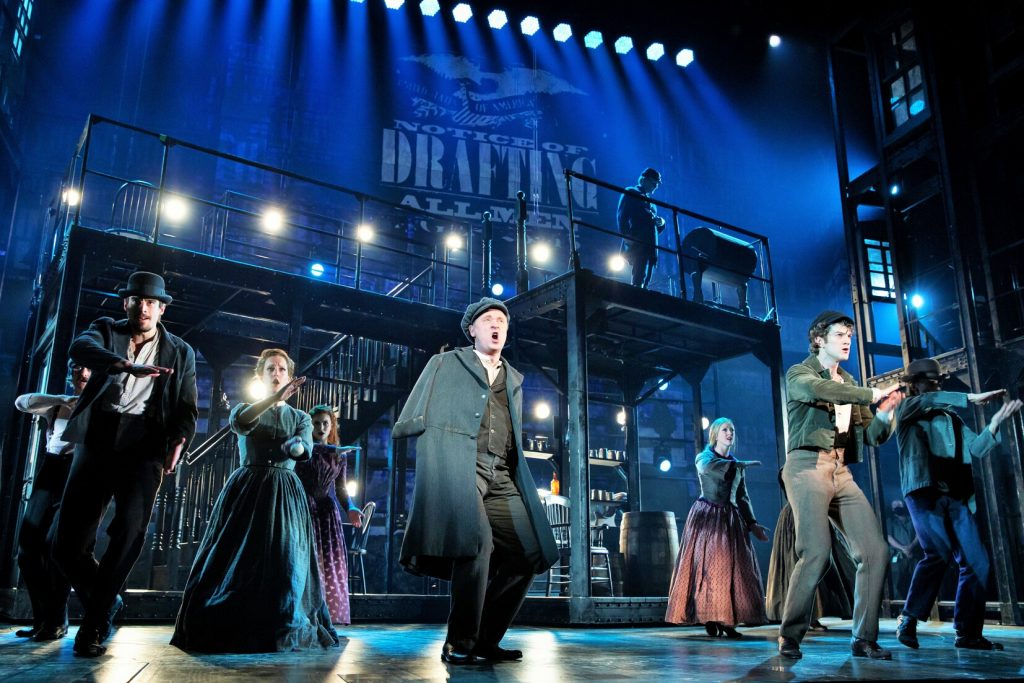
Kirwan weaves into the play the fact that many of the merchants in New York were heavily involved in trade with the South, particularly involving cotton, and were not supporters of Abraham Lincoln and his war. The anti-Lincoln business leaders stoked workers’ resentment, claiming that freed slaves would soon be swarming to New York City to take their jobs away.
Kirwan says the play “reflects the realization that things don’t change all that much, that there’ll always be politicians and con artists who will rile up the working class to further their own goals.”

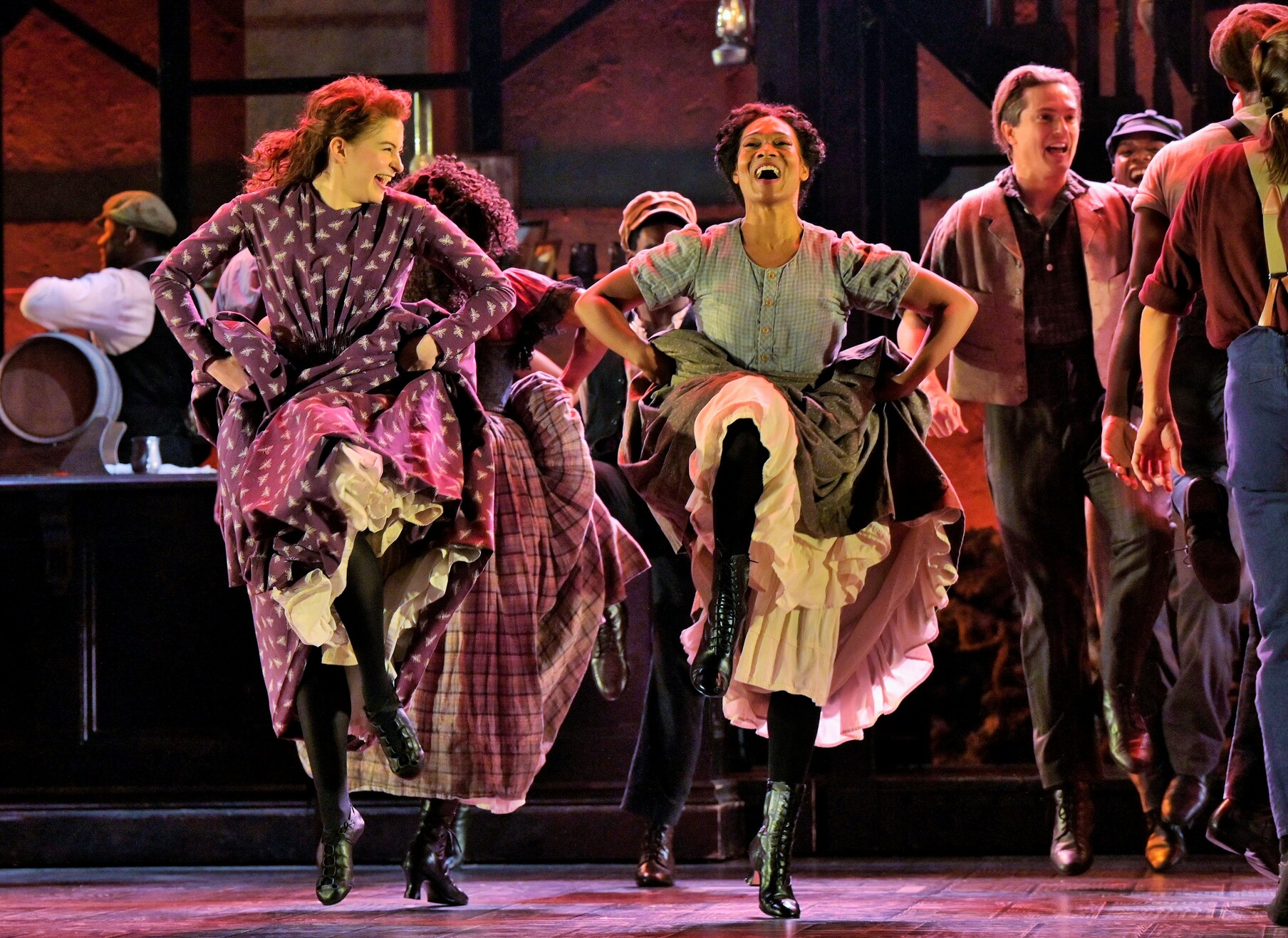
Be First to Comment